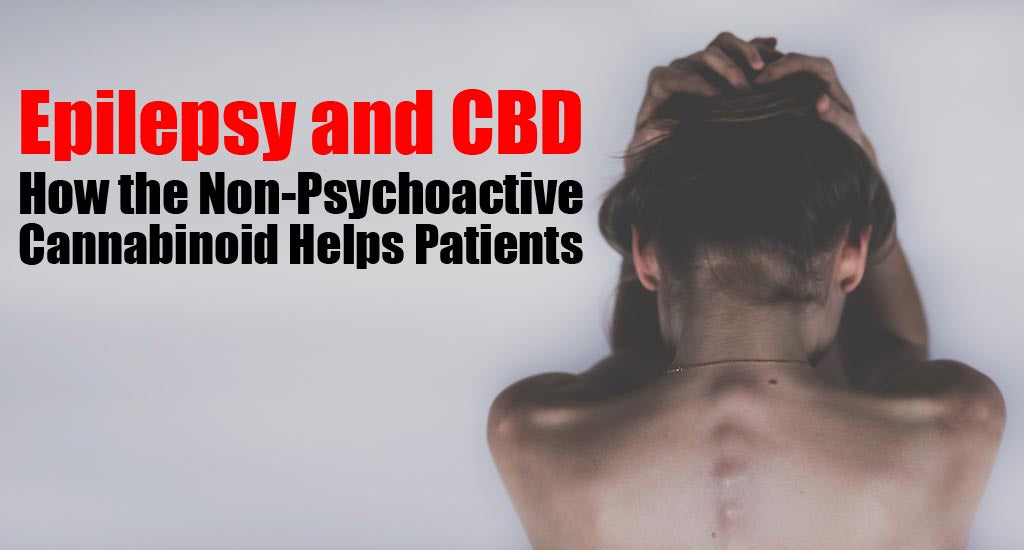
Epilepsy and CBD: How the CBD Cannabinoid Helps Patients
Epilepsy, a widespread neurological condition affecting the central nervous system, is characterized by recurring seizures and touches the lives of around 50 million people worldwide. The causes of epilepsy are diverse, ranging from head injuries and brain tumors to strokes. However, in many instances, the exact cause of epilepsy remains elusive.
Cannabidiol (CBD), a constituent of cannabis, has garnered attention for its potential therapeutic effects across a variety of health issues, including epilepsy. CBD interacts with particular receptors in the brain, which may contribute to reducing both the frequency and severity of seizures.
A key aspect of CBD is its non-psychoactive nature. Unlike other components of cannabis, CBD does not induce the "high" often linked with marijuana use. This quality positions CBD as an attractive alternative for individuals seeking relief from epilepsy symptoms without experiencing the psychoactive effects of marijuana.
Although research is ongoing to unravel the precise mechanisms by which CBD aids in managing epilepsy, its promise as a treatment alternative for this challenging condition is increasingly acknowledged.
How is cannabis able to alleviate seizure activity
Cannabis, and more specifically cannabidiol (CBD), a prominent compound found within it, is gaining recognition for its potential in reducing seizure activity, though the exact processes at play are still being unraveled. It's hypothesized that CBD and other cannabis compounds bind to specific brain receptors, influencing neuron activity. This modulation may lead to decreased seizure occurrences.
Research, particularly studies on animals, indicates that CBD can suppress the function of neurons that trigger seizures while enhancing the activity of those that inhibit them. These effects could play a significant role in lowering both the frequency and intensity of seizures in individuals.
Furthermore, CBD's anti-inflammatory and antioxidant properties are believed to contribute to its therapeutic potential in epilepsy. However, a comprehensive understanding of how CBD impacts seizure activity, along with determining the optimal dosages and methods of administration, requires further scientific exploration.
Related article: THC and CBD, and the Entourage Effect!
What are the researches show?
GW Pharmaceuticals spearheaded a significant trial involving over 200 patients with various intractable forms of epilepsy, predominantly children with an average age of 11. During the two-week treatment with Epidiolex, a notable reduction in seizure frequency was observed – an average decrease of 54%. Notably, patients who used Epidiolex in conjunction with Clobazam (Onfi) experienced an even more pronounced reduction in seizure activity.
In addition to this, three pivotal studies, often referred to as the gold standard in clinical research, have shed light on CBD's effects on specific epilepsy syndromes. Two of these studies focused on Lennox-Gastaut syndrome, while the third examined CBD's impact on children with Dravet syndrome. Both conditions are rare and particularly challenging for those affected.
The findings were encouraging. Patients with Lennox-Gastaut syndrome saw a 40% reduction in seizure frequency, compared to a 20% decrease in the placebo group. Similarly, those with Dravet syndrome reported a 40% reduction in seizures, with the placebo group showing a 17% decrease.
It's noteworthy that placebo recipients often experience symptom improvement due to autosuggestion. However, the improvement rate in patients treated with Epidiolex was about double that of the placebo group, underscoring CBD's significant potential in managing severe forms of epilepsy.
Another crucial aspect to consider is the form of CBD used. While these studies used Epidiolex, a near-natural formulation, the use of CBD oil derived directly from cannabis plants – for both children and adults – along with smoking or vaporizing high-CBD cannabis strains, might offer advantages. In these forms, CBD is not subjected to pharmaceutical processing, potentially enhancing its therapeutic benefits.
Real life story
The narrative of CBD's effectiveness in epilepsy is further supported by a wealth of anecdotal evidence, suggesting that pure cannabis-based CBD may yield even more remarkable results. One of the most well-known and impactful of these stories is that of Charlotte Figi, a young girl who suffered from severe and frequent seizures almost since birth.
Charlotte's condition was not only challenging but progressively worsened as she grew older. Her seizures were so debilitating that they severely disrupted her ability to lead a normal childhood, impeding her physical and cognitive development. In an effort to provide her some respite from the relentless seizures, her doctors even had to resort to placing her in a medically induced coma.
In their quest for solutions, Charlotte's parents stumbled upon an online account of another child who had experienced significant relief from seizures through the use of CBD oil. This discovery marked the beginning of a new chapter in Charlotte's journey with epilepsy, highlighting the potential of CBD in managing severe seizure disorders.
CBD vs Pharmaceuticals
The distinction between CBD and traditional pharmaceutical treatments for epilepsy is quite stark. CBD is known for its minimal side effects, typically limited to mild nausea and dizziness, as reported by some users. This is in contrast to conventional pharmaceuticals, which can produce a range of serious side effects and may not be effective for a significant portion of those with epilepsy.
The turning point for Charlotte Figi came when her family connected with the Stanley brothers, cannabis cultivators in Colorado. Under their guidance, Charlotte began a CBD regimen that transformed her life. The change was dramatic and overwhelmingly positive. From enduring relentless, prolonged seizures daily, she moved to experiencing just a few brief seizures each month. This dramatic improvement allowed her to enjoy a more typical childhood, thanks to the remarkable properties of CBD.
For those interested in delving deeper into Charlotte's story and the role of the Stanley brothers in developing their specialized high-CBD strain, a TedTalk by one of the brothers offers an insightful perspective.
Additionally, the efficacy of CBD in managing epilepsy is not just limited to Charlotte's case. Numerous personal testimonies on YouTube and extensive coverage by major news outlets provide compelling evidence of CBD's potential benefits for various seizure disorders. These accounts underscore the growing recognition of CBD as a groundbreaking treatment option in the world of epilepsy management.
Related article: The Seven Benefits of CBD Oil for Dogs
One last study I want to share with you..
At the American Epilepsy Society’s annual meeting in Philadelphia, promising research was shared regarding the use of CBD (cannabidiol), a non-psychoactive hemp extract. CBD, known for not affecting mood, consciousness, or perception, showed encouraging results in patients with severe, treatment-resistant seizure disorders, including Lennox-Gastaut Syndrome (LGS) and Dravet Syndrome (DS).
GW Pharmaceuticals conducted a significant study involving Epidiolex, a cannabidiol-based investigational drug not yet approved by the FDA at that time. The study encompassed 261 patients, administering Epidiolex alongside their existing anti-epileptic drugs (AEDs). Dosages were gradually increased over a 12-week period.
The results at the conclusion of the 12-week study were noteworthy:
- 45% of participants experienced a reduced frequency of seizures.
- 47% saw a considerable reduction in seizure occurrences.
- 9% achieved a state of being seizure-free.
- Specifically for DS patients, 62% experienced a reduction in seizures, with 13% becoming seizure-free.
- Among LGS patients, 71% saw a reduction in atonic seizures.
- Adverse effects, including somnolence, diarrhea, and fatigue, were reported by 10% of participants, leading to discontinuation in 4%.
- 34% encountered serious adverse events, with 5% of these considered treatment-related.
- 12% withdrew from the study due to a lack of efficacy.
These findings highlight the potential of CBD as a complementary treatment in managing challenging seizure disorders, offering a new avenue of hope for patients with LGS and DS.
Lead author Orrin Devinsky, M.D., of New York University Langone Medical Center’s Comprehensive Epilepsy Center said:
"We are pleased to report these promising data on significant numbers of children, These data reinforce and support the safety and efficacy we have shared in previous studies. Most importantly it is providing hope to the children and their families who have been living with debilitating seizures. These results are from an uncontrolled study. Further study is needed before results can be confirmed. Randomized controlled studies are now underway to help us better understand the effectiveness of the drug. As a practitioner, I have had families move to Colorado, and many tried multiple different products, As a doctor, I often don’t feel like I know which of many factors is contributing to a patient doing better or worse. We absolutely need rigorous, scientific data on this."
Conclusion
In the realm of epilepsy treatment, cannabidiol (CBD) emerges as a beacon of hope, particularly for those grappling with intractable seizure disorders. This non-psychoactive cannabis component has demonstrated a notable potential in reducing seizure frequency and severity, as evidenced by clinical trials and anecdotal experiences alike.
The transformative journey of individuals like Charlotte Figi, alongside the positive outcomes from studies such as GW Pharmaceuticals' Epidiolex trial, underscores CBD's significant role in the epilepsy narrative. While further research is essential to cement its efficacy and optimal application, CBD's current track record paints it as a promising, minimal side-effect alternative to traditional epilepsy medications, offering a ray of hope for millions affected by this challenging condition.



